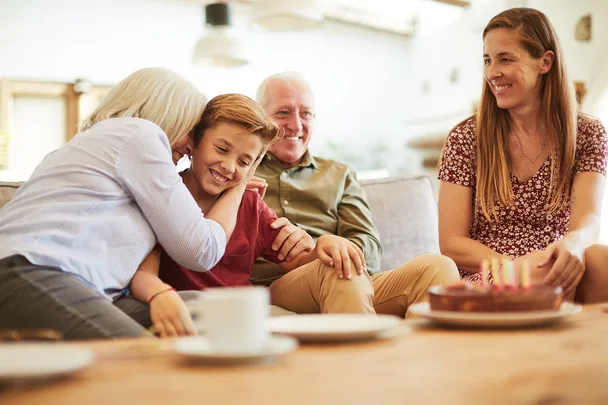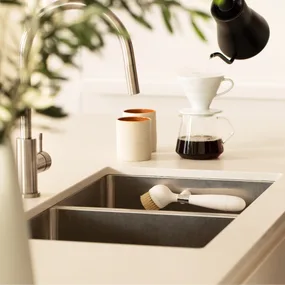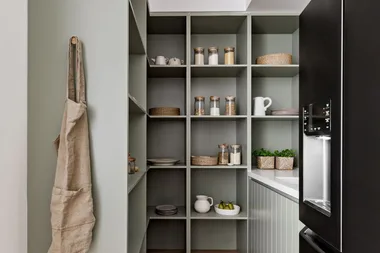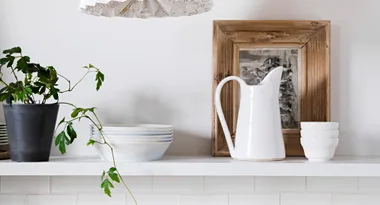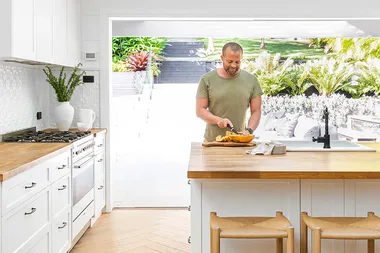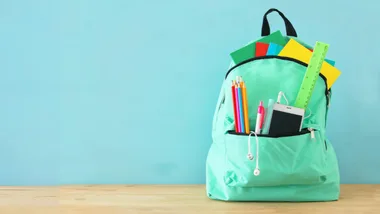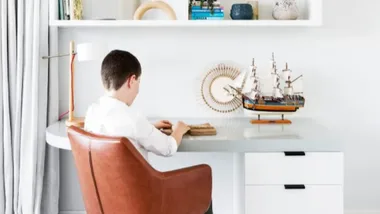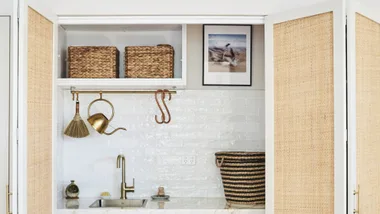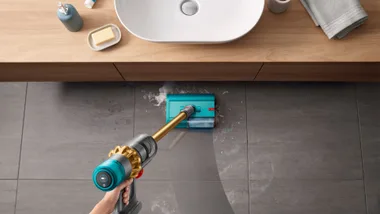WATCH: 7 simple steps to prevent the spread of coronavirus
Refraining from shaking someone’s hand, not kissing your parents or hugging your grandkids… these social acts are what connect us a community and family.
But these are unprecedented times, and social etiquette and family norms are all but forgotten. The coronavirus disease (COVID-19) has landed smack bang on our front doorsteps. So how can you make sure family and guests feel welcome visiting and staying in your home, without compromising their, or your family’s health?
And what, exactly does ‘social distancing’ entail?
Let us explain…
What is social distancing?
Both federal and state governments have issued guidelines recommending ‘social distancing’.
The overarching principal is avoiding public gatherings and close contact with other people. That means being at least 1.5 metres away – more if possible. If, however, you have guests in your home, it’s a little difficult to side-step grandma or your nieces and nephews who are staying with you because a) the school is closed and b) their parents are working overtime in the health sector.
What you can do, however, is minimise physical and close contact with each other. The more space between you and others, the harder it is for the virus to spread.
How is COVID-19 spread?
COVID-19, or coronavirus, is most likely to spread from person-to-person through direct close contact with a person while they are infectious or in the 24 hours before their symptoms appear. This, obviously makes it hard to know if you should keep Susie, Billy or Aunty Beatrice in different rooms.
“COVID-19 is spread via close contact with a person with a confirmed infection who coughs or sneezes, or by touching objects or surfaces (such as door handles or tables) contaminated from a cough or sneeze from a person with a confirmed infection, and then touching your mouth or face,” states the guidelines.
How to minimise the risk of infection in your home
While family and friendly hugs, kisses and handshakes are usually on, right now, they’re off. Speak to your guests and explain the government guidelines, and that these measures are in place to protect everyone – young, old and in-between. They’ll need to save their kisses and cuddles for post-pandemic.
Teach and practice good hygiene
While practicing good hygiene at any time is important, it’s even more important now. Have a family meeting or chat with guests, including youngsters, and explain the house rules. This means everyone should practice regular hand washing with soap and water for at least 20 seconds before and after eating, after going to the toilet and frequently if they touch common surfaces.
If you cough or sneeze, it’s paramount you cover your mouth or nose, dispose of tissues, and wash your hands with soap and water. And if any surfaces are exposed to coughing or sneezing’s tiny particles, disinfect them immediately.
Cleaning and disinfecting your home
While no one likes housecleaning with guests around, cleaning and disinfecting frequently used surfaces such as door handles, light switches, table tops and cupboards is a good idea – especially with lots of people in your home.
Practising common sense
While share platters, finger foods and dips are usually a staple at any home entertaining ‘do, consider revising your hosting main-stays. Instead, serve up individual meals and make sure there’s plenty of space at the table, so people aren’t breathing on each other’s meals.
Similarly, give children unique or highly identifiable cups, so they don’t accidentally share cups, avoid physical contact games or other contact play such as sharing costume masks. Be vigilant around any potential germ-transfer situations. For more information, visit the the Department of Health, COVID-19 resources.
You might also like:
7 germy places in your home that need to be disinfected now
5 Ways to support small businesses during the coronavirus
